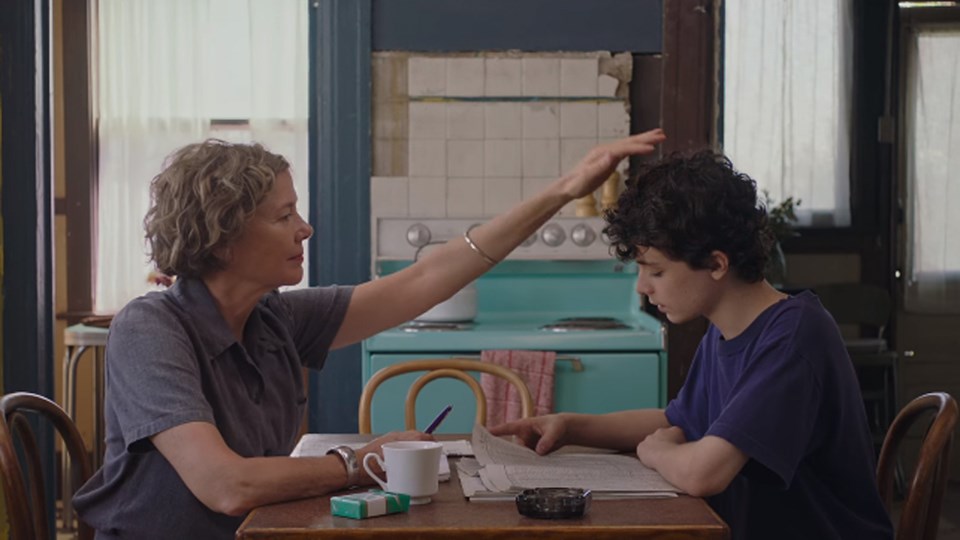Just as he did in his film Beginnings, writer-director Mike Mills dissects older adulthood in the larger context of a somewhat-autobiographical parent-child relationship. In the case of 20th Century Woman, it’s not a son’s bewilderment at the changes in his 75-year-old father, but a mother in her mid-50s obsessing over the ideal way to raise her teenage son.
It’s 1979, and Dorothea Fields (Annette Bening) is a supportive single mother with a lax parenting style that has, thus far, suited everyone concerned. She writes her son creative notes when he skips school (“Jamie was working with the Sandinistas”) and lets him wander Santa Barbara unchaperoned. But now that Jamie (Lucas Jade Zumann) has turned 15, Dorothea becomes obsessed that the male role models she has periodically paraded through Jamie’s life may not have been enough.
“I know him less every day.”
She turns instead to the wisdom of young women. “Don’t you need a man to raise a man?” wonders Abbie (Greta Gerwig), a photographer and punk-rock consumer in her 20s, and a boarder in Dorothea’s rambling, crumbling home. Julie (Ellie Fanning) is only two years older than Jamie but believes herself to be far more worldly, a myth dispelled by the fact that she sneaks platonically into Jamie’s bed each night for comfort.
It’s all about Jamie. That’s why when Abbie receives terrible medical news, the narrative bounces to him: “I’m fine,” he reassures his mom, “I learned a lot.”
The feminism Jamie ingests — including seminal readings Our Bodies, Ourselves and Sisterhood Is Powerful — may one day make him a sensitive lover and a more well-rounded human being, but for now it only confuses his teenage brain. Jamie gets a beating after disproving a local braggadocio’s sex story. And if sex is so empowering, why is Julie so sad all the time? Just when he thinks he gets it — finding a passage from one of those books that speaks of how society marginalizes menopausal women — Jamie is cruelly shot down by Dorothea, for whom the observation cuts too closely to the bone.
While Jamie may be the intended social sponge, it’s Dorothea who needs to learn to roll with the times. The daughter of the Depression fond of putting Big Band music on the jukebox picks apart, and participates in, the punk scene to better understand it. In one great scene, she and sole male housemate William (Billy Crudup) try to analyze and dance to newcomers Black Flag and the Talking Heads. She invites firemen and people she meets on the street over to the house for dinner, but is emotionally closed off from the world.
Bening’s performance as a “stuck” boho mom is never anything less than perfect. Ditto Elle Fanning playing fragile not-quite-a-woman Julie, whom we just want to scoop up and tuck into a real bed. Gerwig and Crudup also deliver performances among their best.
20th Century Women is a sun-drenched search for wisdom in changing times that’s no less relevant today than it was when Jimmy Carter gave his “Crisis of Conscience” speech, with Reagan and the ’80s right around the corner. And so if the film is occasionally a little dispassionate — all that talking about emotion often precludes it — Mills’ attention to detail and his affection for his characters still shines brightly through.
20th Century Women screens at International Village.



